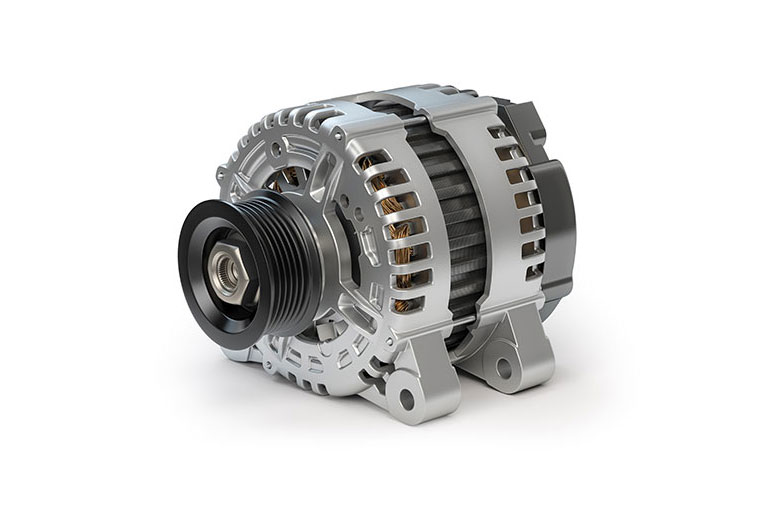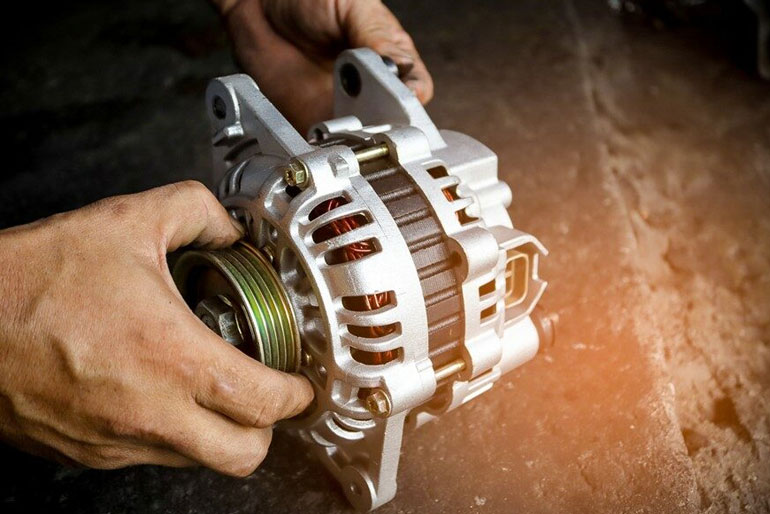When your car starts acting up, especially with electrical issues, it can be pretty worrying. You might end up with a dead battery or electronics acting all wonky, which isn’t fun when you’re trying to focus on the road. One culprit for these troubles could be the alternator. This little guy’s job is to keep your car powered up, so if it’s on the fritz, it needs fixing.
Now, when it comes to car repairs, some are pocket-friendly, like under $50, while others can leave a dent in your wallet, costing thousands. Luckily, replacing an alternator falls on the cheaper side. Depending on a few things, it could set you back anywhere from $100 to $1,000.
Factors Affecting The Alternator Price
When you’re in the market for a new alternator, it might seem like they’re all alike, but some key differences can affect the price you pay. Here’s the lowdown:
First off, you’ve got to consider your car’s specific needs – its year, make, model, and engine size. Think of it like finding the perfect puzzle piece; only the right fit will do.
Next up, there’s the amperage. Smaller alternators, which don’t have to pump out as much power, tend to be cheaper to make. But hey, it’s not always the case.
Then there’s how it mounts. Your alternator needs to slot into your car like it was made for it – because, well, it kinda was. So, no cutting corners here.
Electrical connections matter too. Older cars might have simpler setups, while newer ones can get a bit fancier. That can affect the price tag.
Lastly, think about warranties. A part with a longer warranty might cost more upfront, but it could save you a headache down the road.
Role Of The Alternator

Modern cars gobble up more power than you might think. Sure, there are the obvious things like the radio, power windows, and heated seats, but there’s a whole bunch of other stuff too. Think sensors, modules, and all that jazz. Take anti-lock brakes, for example. They’ve got sensors at each wheel, a control module, a pump, and other bits that all need juice to keep ticking.
Here’s how it works: the alternator spins a magnet and some fancy copper coils to make alternating current (AC). Then, magic happens (well, not really, it’s just diodes doing their thing) and it turns into the direct current (DC) that your car craves.
But if your alternator starts acting up – making weird noises, not pumping out the right voltage, or sending the wrong type of current – it’s time to swap it out for a new one.
Signs You May Need A New Alternator
Nobody likes unexpected bills, especially when it comes to fixing up your car. But when your alternator starts acting up, sometimes you just can’t avoid it. Here are some signs that it might be time to bite the bullet and get it replaced:
First off, if your battery keeps kicking the bucket, it could be a sign that your alternator isn’t pulling its weight. See, it’s supposed to be juicing up your battery while your engine’s running, but if it’s slacking off, your battery suffers.
Then there’s the little warning light on your dashboard. If it looks like a little battery, and it’s shining bright, it’s trying to tell you something’s up with your charging system. That could mean your alternator’s on the fritz.
Ever catch a whiff of burning rubber or electrical smoke? That could be your alternator throwing a fit. The belt might be slipping or something inside could be cooking up trouble.
And don’t ignore your lights acting wonky. If they’re flickering or just not as bright as they should be, your alternator might be to blame. It’s like your car’s power station, and if it’s not putting out steady juice, your lights suffer.
Even if everything else seems fine, listen out for any weird noises under the hood. A whirring or whining sound could mean trouble brewing with your alternator’s bearings.
So, if you notice any of these signs, it might be time to swap out that alternator before it leaves you stranded on the side of the road.
Can I Drive With An Alternator Problem?
Alright, here’s the deal with your alternator: if it’s not charging enough, a short drive to the repair shop should be okay. Your battery can pick up the slack for a bit. But if it’s overcharging, that’s trouble. It could fry your computer modules, battery, and other electronics – even on a quick trip.
So, if you suspect an alternator issue, don’t wait around. Get it fixed pronto. And if you’re unsure about driving, play it safe and call a tow truck. Better safe than sorry, right?
How Often Replace Alternator?
Unlike your brake pads or tires, predicting how long an alternator will last is tricky. Some last a lifetime, while others need replacing more often.







